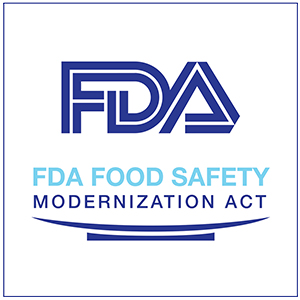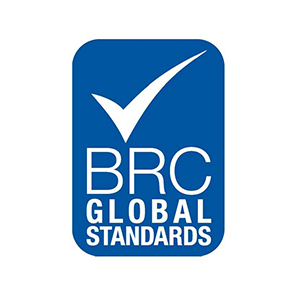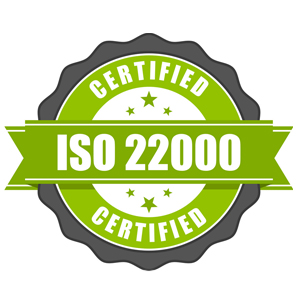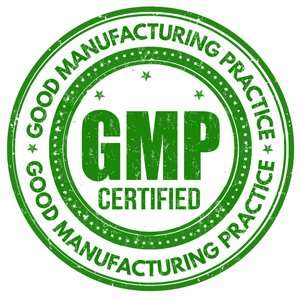Hartmann Consultants are HACCP, PCQI, SQF and ISO 9000 certified professionals. We also have Lean Six Sigma Manufacturing Principles certifications and have expertise in Risk Assessments, Sanitation Controls, Allergen Management, Corrective Actions and applying FSMA rules and regulations to maintain compliance.
Experienced
Having led numerous third party and internal audits, Hartmann Consultants has seen it all. We bring over 20 years of experience in advising, authoring, training and implementing plans, policies, programs and procedures. We’ve assisted companies through surveillanc audits and found solutions that are maintained today. Hartmann Consultants have also developed documentation systems that will bring better organization and transparency to your company.
Professional
YOU are the priority. Hartmann Consultants will assess your needs and work with your schedule to discuss findings and prioritize next steps. We provide detailed reports and will update you at your preferred frequency. Hartmann Consultants also has confidentiality agreements in place for your peace of mind and security.
Intuitive
Hartmann Consultants takes a proactive approach with your overall needs. We understand when conducting a GAP analysis, at times we may only see what’s in front of us. Hartmann Consultants sees beyond the outer shell and recognizes future issues that can be mitigated now. Identifying situations before they have a chance to occur is one of our many assets; one that sets us apart.
Founder & President

Deborah Fox-Morgan
Deborah is a certified PCQI, HACCP and SQF Practitioner with over 20 years of experience in food manufacturing, consumer packaged goods, personal care, pharmaceutical, lubricant and metal-working fluids industries. She has utilized Lean Six Sigma Principles in every position she’s held and has facilitated third party audits with the below certifying bodies:
- SQF
- ISO 9001:2015
- ISO 14001
- ISO 22000
- AIB
- FDA
- OSHA
- Organic
- Kosher
- Gluten Free
- RSPO
Authoring numerous HACCP Plans, Food Safety Plans, Recall Plans, Crisis Management Plans, Policies, Programs and Procedures to FSMA compliance, she has conducted various GAP analysis and risk assessments, all while remaining compliant with Local, State, and Federal regulations.
Deborah has a proven track record of Corrective Actions, Preventative Actions, Verifications, as well as, providing a systematic approach to organizing consistent company documentation.
QUALITY MANAGEMENT AND FOOD SAFETY SYSTEMS

FSMA
Congress realized that foodborne illness was a significant public health issue, as well as, a danger to the economic, well-being of the food system; thus, creating the Food Safety Modernization Act (FSMA) in 2011. FSMA shifted the food safety system from correcting foodborne illness to preventing foodborne illness. It also shifted the responsibility to the food manufacturers and producers by holding them accountable. FSMA also encompasses the responsibility of food safety from many points in the global supply chain for both human and animal food. Some FSMA requirements are:
- cGMP and Hazard Analysis and Risk Based Preventative Controls for Human Food and for Animal Food
- FSVP, Foreign Supplier Verification Program(s)
- Mitigation Strategies to Protect Food against Intentional Adulteration
- Sanitary Transportation of Human and Animal Food
- Accredited Third-Party Certification

HACCP
Hazard Analysis Critical Control Point (HACCP) is a plan comprised of seven principles that addresses the raw material utilized to manufacture your product, to its finished product completion. It views food safety from the analysis and control of biological, chemical, physical, and radiological hazards from ingredient production, procurement and handling, to its manufacturing, distribution, and consumption of your finished product. A thorough HACCP plan allows you to identify the risks of your ingredients and your process; thus, enabling you to eliminate and/or mitigate risks. HACCP plans must be revised and revalidated when there are changes to ingredients, ingredient testing, suppliers, supplier testing, equipment, processes, finished product testing, and any Critical Control Points.

SQF
Safe Quality Food (SQF) is a Global Food Safety Initiative (GFSI) benchmarked food safety standard that supports industry or company branded products and offers benefits to suppliers and their customers. Products manufactured under the SQF code certification is internationally recognized as having a high level of acceptance in global markets. There are three levels of SQF:
Level 1 – designed for producers of ‘low-risk’ food products. Level 1 requires the producer to be aware and implement fundamental food safety controls (i.e. Sanitation, cGMP).
Level 2 – known as ‘certified HACCP based-Food Safety Plan’. Level 2 incorporates all of level 1, yet adding the HACCP risk assessment and its implementation. Level 2 also requires a Food Safety Plan. Per FSMA, only a PCQI can author a Food Safety Plan.
Level 3 – incorporates all of level 1 and level 2, in addition to requiring actions to be taken to correct or prevent contamination and/or inadequate quality through the HACCP process. Level 3 raises the bar by focusing on food quality AND food safety.

BRC
British Retail Consortium (BRC) is another Global Food Safety Initiative (GFSI) recognized certification program. Founded in 1992, It covers all aspects of the process: from ‘farm to fork’. BRC utilizes a risk-based approach (HACCP) to manage food safety. BRC certification can cover Food Safety, Standards for Packaging Standards and Packaging Material, Standards for Storage and Distribution, Standards for Agents and Brokers, Consumer Products, and Retail.

ISO 22000
International Standard Organization (ISO) 22000 is a Global Food Safety Initiative (GFSI) benchmarked food safety standard that utilizes the Plan-Do-Check-Act (PDCA) cycle. PDCA are two separate cycles working together: one cycle covers the management system; the other cycle covers HACCP. Developing, understanding, and managing interrelated processes as a system, allows you to contribute to the effectiveness and efficiency of your company’s goals. Management of the process and system as a whole, can be achieved using the PDCA cycle. Its overall focus is risk based, discovering opportunities, and preventing unwanted results.

GMP
Good Manufacturing Practice (GMP) is a system that ensures your products are consistently produced and controlled according to quality standards. GMP is designed to minimize any risks that cannot be eliminated through testing and covers all facets of your manufacturing facility, its premises, equipment, materials, and cleanliness to the training and personal hygiene of your employees. Current procedures must be in place, as well as, documented training for the employees that utilize those procedures. You must provide documented evidence that these procedures are followed along each step of your process. Being GMP compliant illustrates that you put ‘quality first’.
